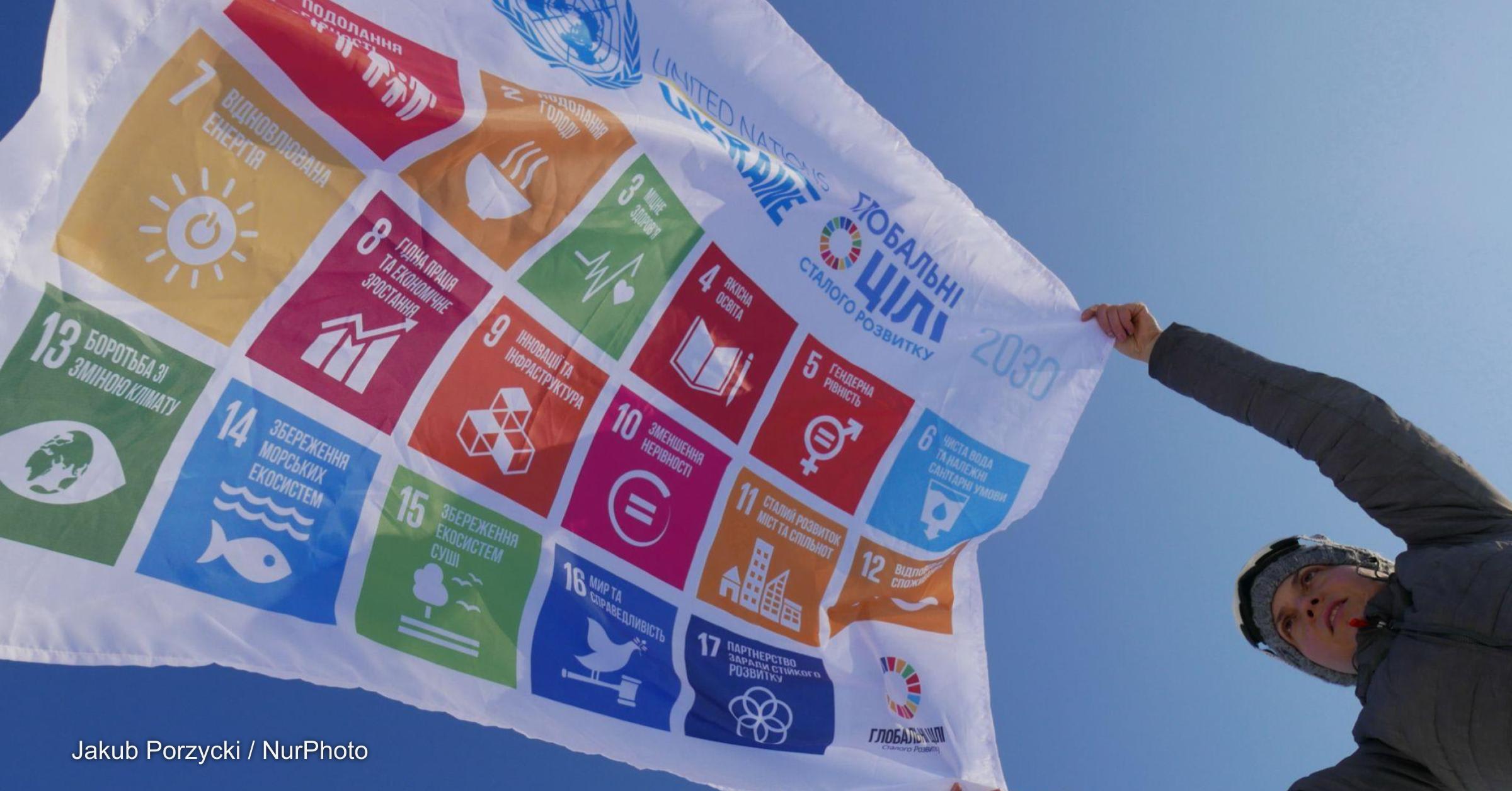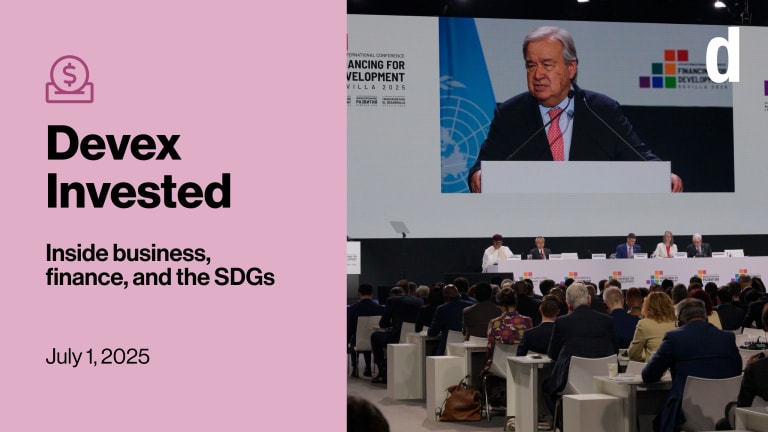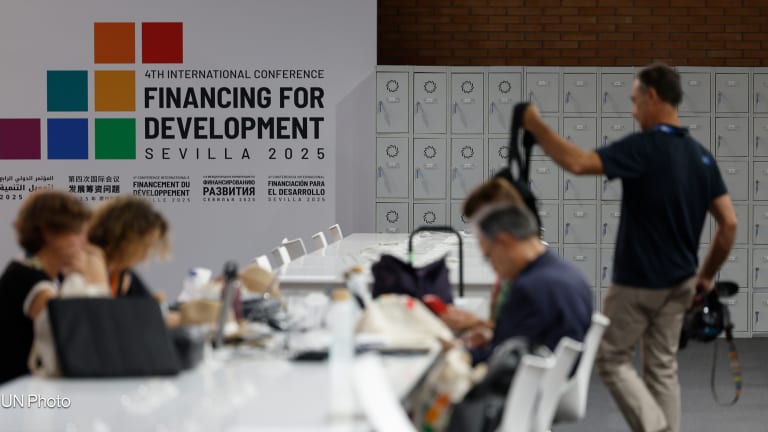
A high-level panel U.N. Secretary-General Ban Ki-moon appointed to flesh out the post-Millennium Development Goals agenda will be meeting next week at the sidelines of the U.N. General Assembly.
So what should the priorities be for the panel co-chaired by U.K. Prime Minister David Cameron, Liberian President Ellen Johnson Sirleaf and Indonesian President Susilo Bambang Yudhoyono?
Jeffrey Sachs, director at Columbia University’s Earth Institute and special adviser to Ban on the MDGs, suggests creating four big pillars: ending extreme poverty, social inclusion, environmental sustainability and good governance.
“The idea of sustainable development is the so-called ‘triple bottom line’ — that you combine economic, social and environmental objectives and then you commit to good governance to achieve that triple bottom line,” Sachs explained to Devex while in Boston for the past weekend’s Millennium Campus Conference.
This is not to say that Sachs endorses an entirely top-down, U.N.-dominated approach. While Sachs felt that “the beauty of the MDGs is that they take a holistic view of extreme poverty,” 2011 Nobel Peace Prize laureate Leymah Gbowee told Devex individual countries are sometime overwhelmed by the magnitude and breadth of the goals.
“I would like to see our government say, for the next three years, we’re not going to go with all of these goals … but we’ll prioritize the goals,” Gbowee told Devex. “And then you take one to effectively work with. And once we’ve seen some progress, we move on to another one.”
In response, Sachs explained that governments could set their own milestones, specific targets, monitoring and metrics based on these four broad pillars. “That may be a way to balance the global common ambition with country-specific needs,” Sachs adds.
But is there room for global partnership in his four-pillar philosophy? Absolutely, Sachs said. International responsibility and good corporate responsibility are part of good governance. But, “we need some standards of what good governance means, not just for government, but also for major actors in the international scene, like the big companies.”
In fact, the problem of corruption was a recurring theme throughout the day. At a panel discussion, Gbowee’s frank reply on how the United States could lead global development efforts got resounding applause:
“It’s one thing to say respect the rights of women, and we’re going to fund projects in your country that will improve and enhance basic rights. It’s another thing to have policies and practices in your own backyard that do not reflect on what you’re asking other nations to do.
“One of the favorite past times [for leaders], especially in developing countries, is to come to the U.S. and do a ‘study tour’ and pick up all of these things and take them back. So for example, when you have a group advocating for specific rights and you go to the parliament, one of the first things you get is that ‘Even in America, it is not done there, so why do you think we should do it here?’ So I think, while we have good intentions with all of the different things, including the MDGs, leading by example is the big thing for me.”
When asked to expound on the same question, Sachs succinctly replied, “I think you just heard the best answer.”
Read more development aid news online, and subscribe to The Development Newswire to receive top international development headlines from the world’s leading donors, news sources and opinion leaders — emailed to you FREE every business day.








